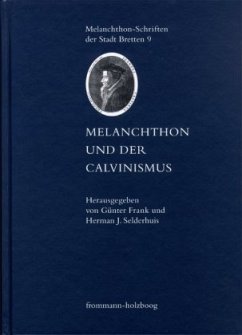Melanchthon's relationship with Calvin and Calvinism has often been examined in the past, mainly with regard to the theological issues of the Reformation: the Heidelberg Catechism, the doctrine of predestination, the problem of free will, the question of the Lord's Supper, exegesis etc. It is common knowledge that these issues had already been summarized in the polemical rhetoric of Crypto-Calvinism during the Reformation. The state of research in a further cultural and historical context however takes on a completely different appearance, since this is a context which is not determined only by the common ground and issues in theology but also by the constitutive conditions of scholarship and culture in the early modern period. The articles in this volume examine the question of Melanchthon's influence on the cultural history of the early modern period in the Calvinism of the countries in which Romance languages were spoken and of the English-speaking world.
»As a whole this collection provides many insights as well as invitations for further research and scholarly exchange.« Robert Kolb, Renaissance Quarterly »Melanchthon und der Calvinismus takes its cue from a growing body of literature that has removed the quiet reformer from the shadow of Luther and has convincingly placed him in the sixteenth-century pantheon of important thinkers. While the contributions run off in different directions, they all stand on solid research and attest to the complex interrelationship between the legacies of two great reformers.« James Thomas Ford, The Sixteenth Century Journal

